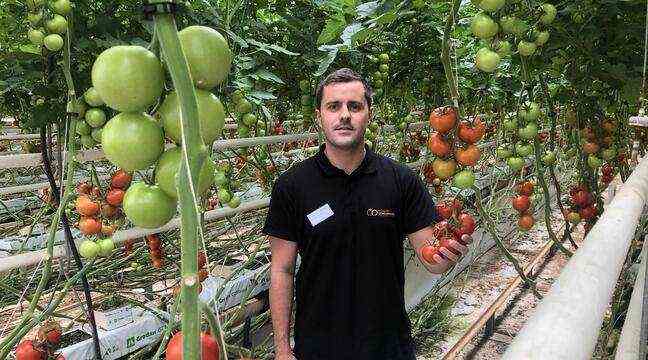“We want a change in consumer perception and fight a lot of received ideas. “It is a long way to hear Nadège Bottazzo, communication manager for thePDO, the association of national producer organizations ”
Tomatoes and Cucumbers from France ”bringing together more than 1,000 producers across France.
The Cheminant group, in Carquefou, near Nantes, is one of them. On the 11 hectares of greenhouses, Antoine, 25, (accompanied by his father and sister), produces 3,000 tonnes of tomatoes per year and between 4,000 and 4,500 tonnes of cucumbers over a year. The family business (spanning 13 generations), with its 85 full-time employees and nearly 9 million turnover, greatly contributes to making the Nantes basin one of the first in terms of production in the West for tomatoes and the first nationally for cucumbers.
Since 2019, the Carquefolienne company, member of the Océane industrial market gardening cooperative, has been participating in a program with the aim of breaking down the clichés that stick to tomatoes produced in greenhouses. Her name ? Cute meaning cultivating the taste of Europe, an operation subsidized by the European Community. “We want to promote the production method in greenhouses in France,” explains Nadège Bottazzo. From its exterior appearance, greenhouse cultivation can give a very industrial image, but this is not the case at all. In addition to the establishment of hedges and the use of sheep instead of electric mowers outside greenhouses, there is a real approach to production without pesticides or with zero pesticide residue. “
Many advantages with above-ground production
In Carquefou, Antoine Cheminant “recreates real biodiversity” in his huge greenhouses to avoid using phytosanitary products. With for example, the PBI, that is to say integrated biological protection. Insects, called growing aids, are inserted into greenhouses to control pests and pests. However, greenhouse production is not considered organic… The only thing missing is the link with the soil to obtain the label. Much to the chagrin of its representatives who are also criticized for the use of led and heating to help the development of vegetable plants.
Antoine defends greenhouse cultivation with great conviction and even invites people to come and see on site: “By cultivating soilless, we even better control the supply of nutrients and water to the plants,” he insists. With this system, we also overcome soil diseases, which are numerous, and climatic hazards, that is to say, rain, frost and wind. This ultimately results in a healthy and qualitative product. »Necessarily dependent on sunshine. “The taste of a tomato depends on the variety, but also on the amount of light the plant absorbs. “A data difficult to control. With the lack of sun for several weeks in the West, Antoine Cheminant estimates “a decrease in its production of nearly 30%” and negative consequences on the September yield.

